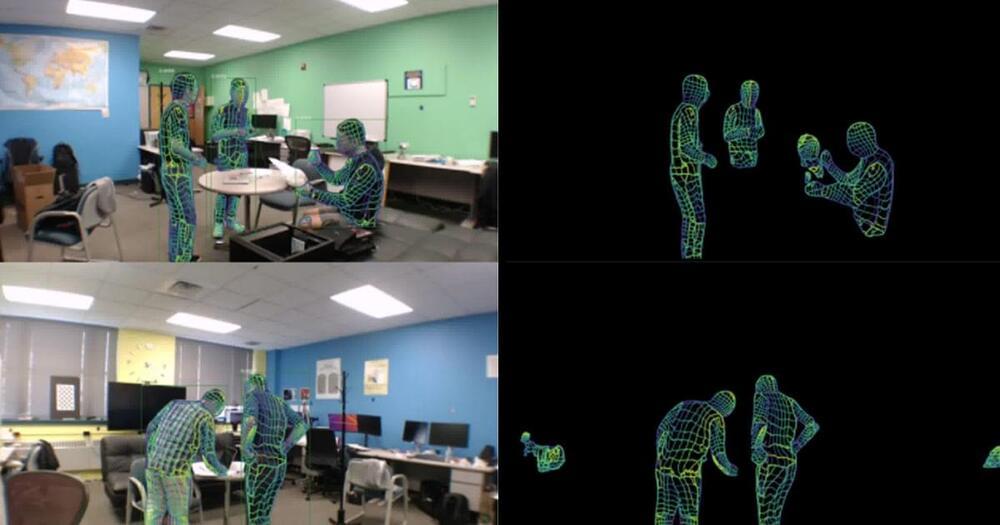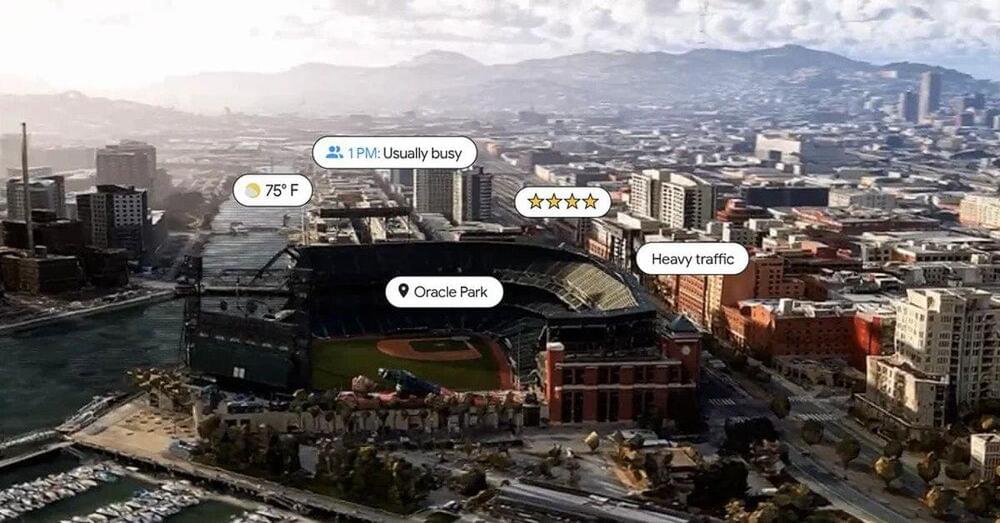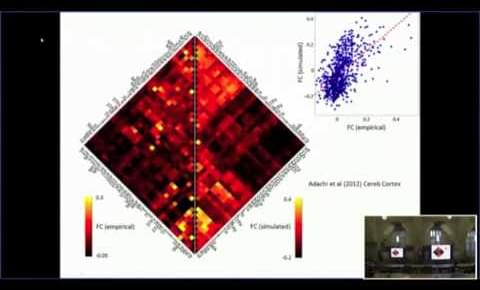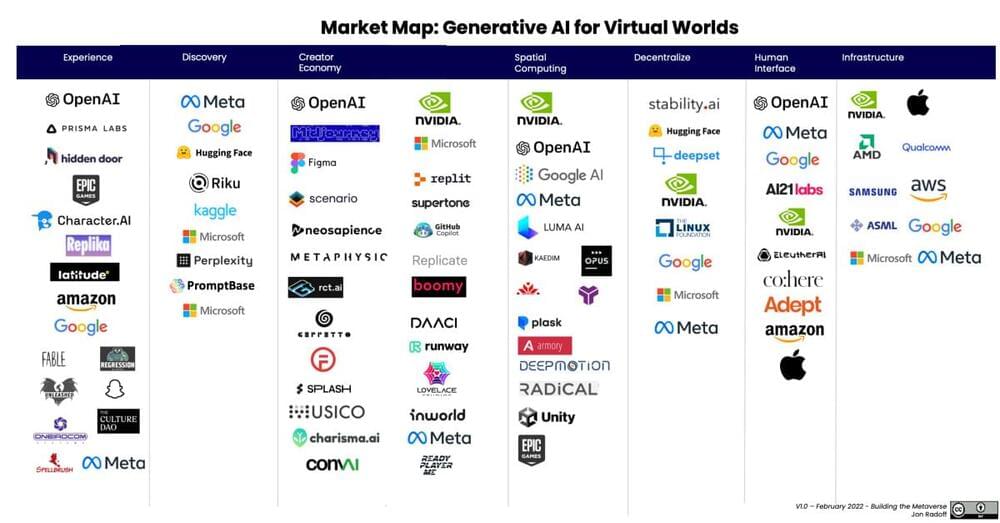Feb 9, 2023
New Tech Can See People Through Walls Using WiFi
Posted by Paul Battista in categories: information science, internet, mapping, robotics/AI
A team of researchers have come up with a machine learning-assisted way to detect the position of shapes including the poses of humans to an astonishing degree — using only WiFi signals.
In a yet-to-be-peer-reviewed paper, first spotted by Vice, researchers at Carnegie Mellon University came up with a deep learning method of mapping the position of multiple human subjects by analyzing the phase and amplitude of WiFi signals, and processing them using computer vision algorithms.
“The results of the study reveal that our model can estimate the dense pose of multiple subjects, with comparable performance to image-based approaches, by utilizing WiFi signals as the only input,” the team concluded in their paper.


















